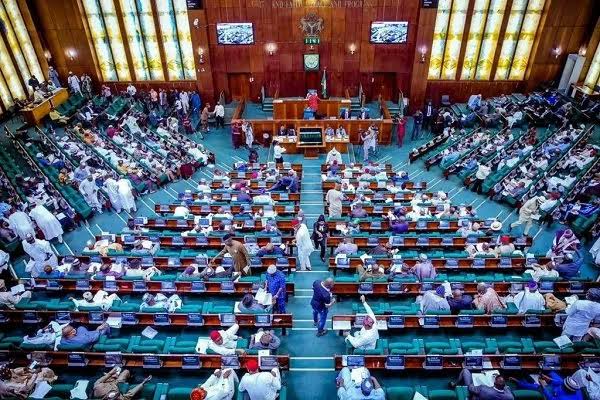
The House of Representatives has taken a decisive step by mandating its committees to investigate businesses operating in Nigeria. The move follows the adoption of a motion presented by Esosa Iyawe during a plenary session held on Thursday.
The motion, which garnered unanimous support from members of the House, highlights the alarming trend of businesses failing to fulfill their tax obligations to the government. According to Iyawe, an estimated 5,000 companies owe the Federal Government a staggering N5.2 trillion in unpaid taxes spanning the period between 2015 and 2019. Additionally, recent reports indicate that some companies neglected to remit over N17 billion in taxes in 2021 alone.
During the presentation of the motion, Iyawe underscored the gravity of the situation, emphasizing that the non-remittance of such substantial sums deprives the government of much-needed revenue for developmental projects and essential services. He also raised concerns about the preferential treatment afforded to multinational corporations, juxtaposed with the stringent tax obligations imposed on small businesses.
The House of Representatives responded swiftly to the motion by resolving to task the Committees on Public Account and Finance with conducting a thorough investigation into the matter. The primary objective of the probe is to identify the companies responsible for the non-remittance of taxes and to recover the outstanding funds owed to the government.
The decision to launch the investigation underscores the House’s commitment to upholding transparency, accountability, and fiscal responsibility in Nigeria’s economic landscape. By holding businesses accountable for their tax obligations, the government aims to ensure a level playing field for all enterprises and prevent the exploitation of regulatory loopholes.
The magnitude of the unpaid taxes paints a troubling picture of the state of tax compliance in Nigeria. Despite the government’s efforts to streamline tax administration and enforcement, persistent challenges remain, including tax evasion, underreporting of income, and lack of compliance mechanisms.
The motion also draws attention to the discrepancy in the treatment of large corporations and small businesses in terms of tax obligations. While multinational corporations often enjoy favorable tax incentives and exemptions, smaller enterprises are burdened with multiple taxes and regulatory burdens. This imbalance perpetuates inequality and stifles the growth of local businesses.
In light of these findings, the House of Representatives has called for urgent action to address the systemic issues contributing to tax evasion and non-remittance of funds. The Committees on Public Account and Finance have been tasked with conducting a thorough investigation into the matter and presenting their findings to the House within four weeks.
The success of the probe hinges on collaboration between government agencies, law enforcement bodies, and regulatory authorities. By working together, stakeholders can identify the root causes of tax evasion, implement robust enforcement measures, and promote a culture of compliance among businesses operating in Nigeria.
The outcome of the investigation will not only hold accountable those responsible for tax default but also pave the way for policy reforms aimed at strengthening the country’s tax system. Ultimately, the goal is to enhance revenue mobilization, foster economic growth, and advance the welfare of all Nigerians.









Join our Channel...